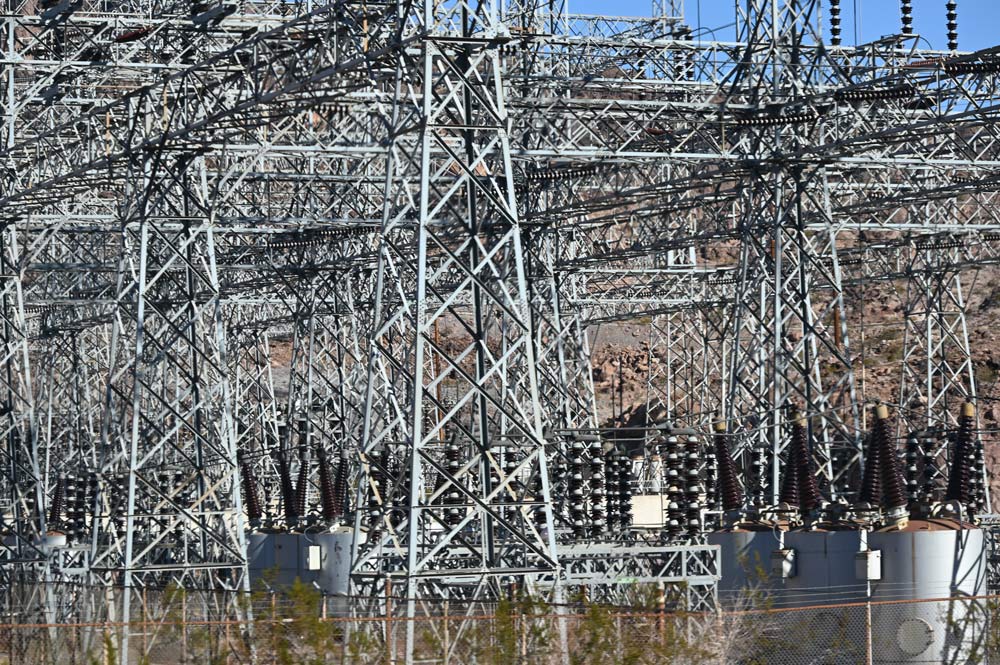
For the third time in 11 years, the Palm Coast City Council is exploring the imposition of a new, 6 percent tax on all electricity bills by way of a so-called “franchise fee” that would be levied on Florida Power and Light and passed down to customers.
Mayor David Alfin and Council member Theresa Pontieri see the new tax (or fee) not as additional revenue, but as a way to lower the property tax–a tactic other cities adopt when seeking to pass the tax. But as in Flagler Beach and Bunnell–both of which have had the tax for years, the money soon becomes part of the revenue furniture and does not have a lasting effect on the property tax: both Flagler Beach and Bunnell have significantly higher tax rates than does Palm Coast.
When the council considered the fee in 2011, it made the same argument–that it would be a way to reduce the property tax rate, not to increase revenue. Residents did not buy it, forcing the council to reverse course.
The proposal today generated sharp, divergent responses from council members.
“This is nothing but a tax increase,” Council member Ed Danko said. “And our citizens have been beaten up enough with the price of gasoline, the price of food, the price of everything. I just want to make it clear. I will not vote for either or any of this. It’s a tax increase.”
“I’m just asking for more consideration instead of the obtuse view that ‘this is a tax and so I’m not going to vote for it,’” Pontieri said. Both she and Danko were willing to talk about budget cuts.
All but 12 percent of cities in the state either have a franchise fee or a utility tax, which is similar, or both. Twice in the past eleven years Palm Coast considered adopting one or both fees. Twice the public rejected the proposals.
The council in June asked its administration to bring forth an analysis on possibly adopting an electric franchise fee. The request at the time was prompted not by a wish to change the city’s tax and revenue structure, but by a sobering report on how expensive the paving-maintenance needs of the city are getting: $52 million over five years. The city doesn’t have the money. Unwilling to raise the property tax rate, it needs a new source of revenue.
Two untapped sources of tax revenue at the city’s disposal are the electric franchise fee and the public service or utility tax. Both can be tapped. One could be added to power bills, the other to water bills. The public service tax can be up to 10 percent of a utility bill. But today’s presentation focused only on the franchise fee.
In Florida, 88 percent of cities have either a franchise fee, a utility ta or both (35 percent have both), so just 12 percent have neither. Palm Coast is in that latter class.
Florida Power and Light has franchise fee agreements with 195 cities, including Bunnel, Flagler Beach and Ormond Beach. Flagler Beach, for example, generates upwards of $300,000 a year from its franchise fee–and more than $700,000 from its utility service tax. Bunnell generates $300,000 from its franchise fee and $526,000 from its utility tax.
How is imposing both not double taxation? The answer goes back to a 47-year-old bit of legal prestidigitation by the Florida Supreme Court. A trial court had, in fact, ruled that the franchise fee was an impermissible tax based on a percentage of gross receipts, “an amount which bore no relation to the cost of regulation,” the high court summarized in a 1994 decision, while local governments had “no evidence showing that the fees were based upon a reasonable rental value for the utilities’ use of the counties’ rights-of-way.”
But the court didn’t buy those arguments. It relied on the 1976 precedent, when the court ruled that “[W]e have absolutely no difficulty in holding that the franchise fees payable by [a utility] are not ‘taxes’. The cities would lack authority to impose taxes of this type [under the Constitution] and, unlike other governmental levies, the charges here are bargained for in exchange for specific property rights relinquished by the cities.”
It wasn’t clear then, and it isn’t clear now, how cities lacked the authority to impose precisely what the court now allowed them to impose, but through a different definition. As far as customers are concerned, the fee is indistinguishable from a tax levied on their bill’s gross total. But local governments are grateful for the legal cover to call it a fee and evade the accusation of a hidden tax increase–or another shift from burdening the property tax. (Legal sophistry aside, the terms fee and tax are used interchangeably in this article.)
The franchise fee would tax Florida Power and Light up to 6 percent for using the city’s rights of way. It would be levied every month.
FPL would then automatically pass the cost to customers through a 6 percent fee on each individual bill. So for a household with a $200 monthly electric bill, the fee would be $12, or $144 a year. It would do nothing to improve electric service. But it would presumably be used by the city to sustain or improve public services.
Read Related Also: The Truth About The Arrest That Ruined Paul Reubens' Career
For Palm Coast, a 6 percent fee (or, in effect, tax) would generate $5.7 million annually, rising in proportion to the city’s growth in electric customers. Use of the revenue would be entirely up to the council.
Alves said the fee would be imposed uniformly, with no difference between homesteaded taxpayers and non-homesteaded taxpayers. So shifting away from the property tax would in effect result in a greater burden for the homesteaded. Homesteaded property owners have hardly seen a property tax increase in the last many years (in inflation-adjusted dollars, many homesteaded property owners are paying less in property taxes today than they were 10 years ago).
The franchise agreement would stretch for up to 30 years, so once it’s in place, it would not have to reappear before the council for approval for that long. On the other hand, the draft agreement already prepared by the city gives it the authority to revisit the agreement’s percentage: it would not have to be set at 6 percent year after year. It could be lowered, or lowered and raised over the years–but not beyond 6 percent, unless the Legislature changes that threshold.
“It is incumbent upon us to diversify our revenues. We know that 92 percent of our General Fund monies come from ad valorem,” City Council member Theresa Pontieri said. “And that is a very dangerous place to be. I think those of us who are people who have been here for 20 years know what that feels like when property values drop.”
Pontieri’s figures are off. Property taxes account for only 60 percent of the general fund (and In 2021, the last year for which complete figures are available, property taxes generated $26.3 million in a general fund of $43.7 million. The 2023 adopted budget projected property tax revenue of $33.9 million in a general revenue of $52.7 million, a 64 percent share.
Just as significantly: the general fund accounts for just 14 percent of all city revenue, which includes the city’s water and sewer utility (which generates almost twice as much money than property taxes do), impact fees, garbage fees, stormwater management fees, debt proceeds and the communications service tax ($2.6 million), which is similar to the franchise fee or the utility tax, but on communications. Still, essential services such as fire, police, streets and parks and recreation are all paid out of the general fund.
Both Pontieri and Mayor David Alfin were also inaccurate when Alfin said that replacing a portion of the property tax revenue with franchise fee revenue “would have more flexibility with these dollars than we might have with the dollars we’re bringing in traditionally.” General fund revenue is exactly that: general. In fact, franchise fee revenue would go into the general fund and would be indistinguishable from property tax revenue in that pot, for the city to spend as it wishes.
Still, Alfin persisted in the misleading claim that trading in property ta revenue for franchise fee revenue would “buy flexibility with what you can spend the dollars on.”
Pontieri would see the franchise fee as a way to reduce the property tax through rollback. “And because we’re unrestricted, we could diversify our revenue, still pay for pavement management and also the increase in the sheriff’s contract with these monies as well.”
This year if the city were to adopt the rollback property tax rate rate, as opposed to sticking with the current rate, it would loose $2.8 million, leaving about that much for the streets program. Alves cautioned, however: franchise fee revenue will not grow in the same proportions as would property tax revenue. ” So long. term, it’s not apples to apples,” Alves said.
Residents would also not see anywhere near an equal reduction from their Palm Coast property taxes to the sort of franchise fee they would pay, since it would require a more significant property tax reduction than merely going back to roll-back to realize what would average out to a $144 hit on the utility bill.
On the other hand, the franchise approach would also begin to capture some revenue for the city from users of electric vehicles. “You can call a tax, you can call whatever you want,” Pontieri said, “it diversifies our revenues, but it’s also a way to get money from EV charging and it’s a way that we can then grant the roll back we’ve all been talking about and still generate income.”
Pontieri’s proposal is not without an ideological context. It has been a long-term, if so far largely unattained, goal in some hard-right circles to eliminate the property tax–an effort fitfully under way in Texas this year. But Palm Coast’s historic approach toward the property tax, keeping it as low as possible and shifting away from it whenever possible through user fees and other sources of revenue, reflects the larger goal, if still from a distance. Today’s discussion narrowed that distance further.
Even Jon Netts, the late mayor and council member, favored getting away from the property tax for the same reasons Pontieri spoke today. “One ‘advantage’ of a Public Service Tax is to ‘diversify’ the revenue stream,” Netts had said in a 2018 interview, but also added: “Since the voters strongly opposed the imposition of such a tax, the idea was dropped by City Council. The voters clearly spoke. Unless there is a change in their position, I will not support the creation of a Public Service Tax.”
Danko cautioned the council that the public would be angry again if the council proposed the franchise fee. “This place was packed with angry residents,” he said, asking Councilmember Nick Klufas if he recalled it. Klufas didn’t. “I don’t think we actually brought this to a vote,” he said.
Not entirely accurate: the angry residents had turned out in 2011, and again in 2018. Council members sensed it quickly in 2018, and voted unanimously (with Klufas’s vote) to table the matter indefinitely.










